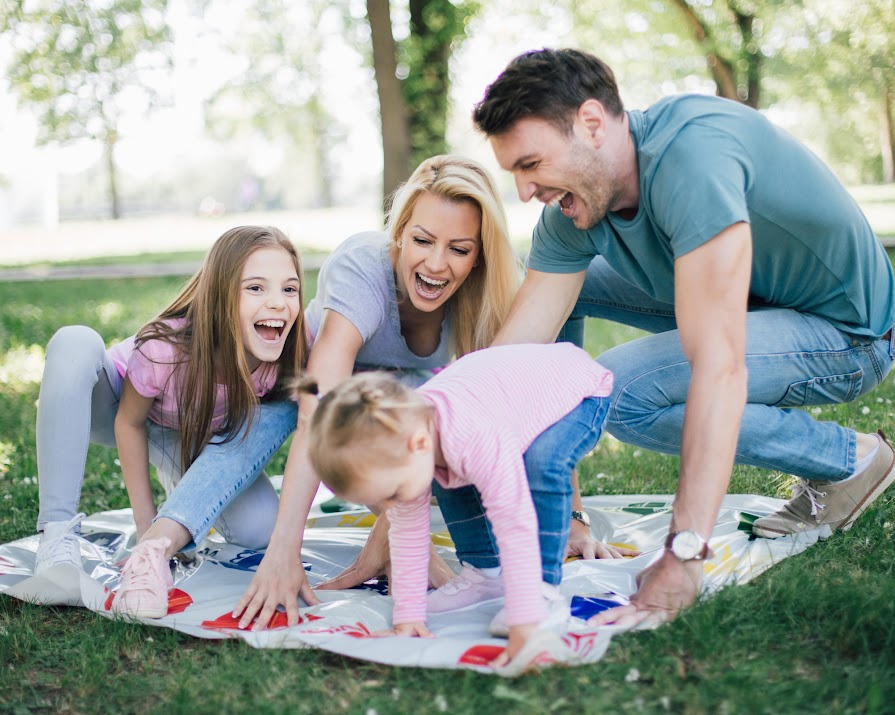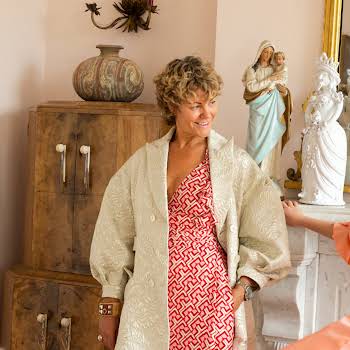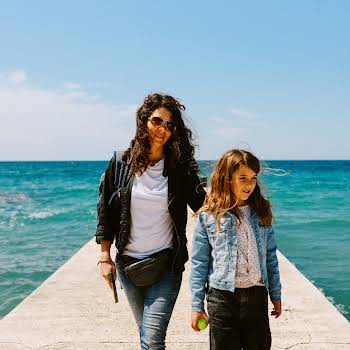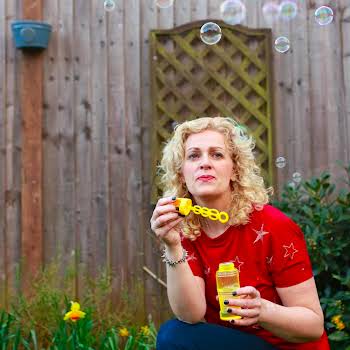
By Julie Meehan
03rd Nov 2019
03rd Nov 2019
Psychological change can be difficult – for ourselves and in our families. This week, we look at steps to make effective and enduring shifts in our relationships with ourselves and our children.
Over the years, in practice as a psychologist, I have had the privilege to meet many parents, almost all of whom have been looking for some type of change to happen in their lives and in the lives of their children and families. They often include the following introductions:
“I want my child to feel more confident.”
“I want my partner to be more present.”
“I want to be kinder to myself.”
“I want my mother to be less critical.”
“I want my child to not suffer anymore.”
“I want to stop blaming myself for everything.”
“I want things to be different…”
These shifts are sometimes not easily won. Time and time again I am asked how parents can improve their children’s wellbeing or effect change in their behaviours and attitudes, so that ultimately their children can be happier.
Complex change
We all want this for our children. And while we may long for an easy-to-apply answer to this question, there rarely is one. Psychological change is at once both a complex and simple phenomenon which has many, many elements to it. This is most likely the reason why we can struggle so much with it and why there is an entire industry – known as wellness – that thrives on our intriguing relationship with change. It is based on the premise that change can be transformative but it is difficult to attain.
It is often the small simple changes that … result in a shift in how we relate to ourselves and our families.
In my own direct experience and in my professional work I have seen how transformative authentic change can be. It is often the small simple changes that are so subtle that they are almost imperceptible that when added up, result in a shift in how we relate to ourselves and our families.
But is also can be elusive – sometimes it may feel like no matter how hard we try, we never seem to gain any traction in making change happen. So we find ourselves feeling stuck, disempowered and hopeless.
3 steps to change
If that sounds a little off-putting, please read on because change is possible. What can be immensely helpful is knowing and understanding the components of what makes change possible. Below I break down some of the primary elements of change into distinct building-blocks so that you can feel more empowered to face whatever change you would like to see happen in your children’s lives and your own.
1 Challenge motivates change
It often seems that we look for change to occur when we find ourselves or someone we love to be suffering in some way. Research supports this observation: it has shown that psychological distress is one of the primary motivators for change in human behaviour.
We are more motivated to change when distress, discomfort or suffering is at play in our experience or the experience of others in our lives.
Whilst we can seek change at any time, it seems to be our nature to be more motivated to change when distress, discomfort or suffering is at play in our experience or the experience of others in our lives. Though these times we all face can be intensely painful for us, especially if our children are struggling, they can evolve into opportunities to invite change into our lives.
This is the tremendous gift that can lie underneath times of tumult and pain – a gift, if opened up to – can not only lead to shifts in our own sense of wellbeing, but in the wellbeing of our children and broader families.
And so, if you find that you or your children are experiencing a time of significant challenge, it can be helpful to remember that even despite the sense of disempowerment that might be with you, this time can be a fertile time for change to begin to happen.
When I find myself in times like this, I now practise this approach, gently reminding myself that it is from the greatest periods of challenge that shifts can occur. There is a saying in Buddhism that I keep in mind during these times: ‘No mud no lotus’.
If it wasn’t for the mud, we would never see the exquisite blossoming of the lotus flower.
2 Change starts with ourselves
Very often, when we are seeking change, the focus is for change to occur in our relationships, because after all, we are constantly in relationship with something. Be it external (how we relate to everything and everyone on the exterior of our experience) or internal (how we relate to our current experience, our past experiences, our thoughts, our beliefs, expectations, sense of self), we are in relationship.
A turning point in our relationship with change is often when we see that we cannot change other people in our lives.
And while we may dearly wish for those who we are in relationship with to change (our teenager to open up to us; our seven-year-old to make some friends; our 11-year-old to stop crying all the time, our partner to seek the help that they need etc), a turning point in our relationship with change is often when we see that we cannot change other people in our lives.
No matter who they are. The only way we can begin to influence change to happen in others, is to start with ourselves: When we begin to open up to how we might like to see a change in our relationship with ourselves, be it with our thoughts, our self-expectations and standards, our wounding and our vulnerabilities, a shift in our sense of agency begins. This means that the focus of our energies moves from the other person (be it our child, partner, mother, boss, whoever) to ourselves.
Though this can be often painful, it typically results in a greater sense of empowerment, which is a catalyst for transformation. Think of the line: “I can’t change anyone else, but I can take responsibility for how I would like to change”.
Ghandi put it beautifully when he said, “If you want to change the world, start with yourself”.
3 Changes happens in small steps
Sometimes true and enduring shits can happen in one swift act – someone decides to never smoke again after suffering an acute and severe asthma attack – very often change happens over a longer period of time. When our children are in distress, quite naturally we look for strategies to help them shift out of their discomfort and pain right now.
It is so important to remember change can be slow and incremental, but nonetheless powerful.
There are ways in which we can support our children to feel a little better in the moment: putting that plaster on their knee, offering them comfort, knowing when to give them space. However, typically enduring change is made up of a series of these moments and more. It is so important to remember change can be slow and incremental, but nonetheless powerful.
I call this approach to change The Long Game. It is remembering that while we would love to have a magic wand to instantly dissolve our children’s distress, we can cultivate the ground for change to happen by holding the intention of sowing the seeds of small little changes over time.
Power of intention
Intention is a powerful force so remembering that change starts with yourself, ask yourself what it is that you would like to see change in your relationship with your child. Be specific. Then reflect on how you might go about how you are relating to them a little bit differently. This might look like pausing before you respond to an inflammatory comment made by your child, or it might be deciding to close the laptop and get down on the floor to play Twister with them.
Whatever the small change is, allow yourself some space and creativity for it to be applied in how you are relating to your child, and be patient. In each small step that you take, you are empowering yourself once again.
It may not be apparent in the short-term, but you may begin to notice a different quality and tone to how you and your child are relating to each other, and, over time, you may not only begin to see shifts in how you are feeling and viewing the difficulty, but subtle shifts in how your child appears to be relating to you, and most importantly, themselves. This is one of the greatest gifts we can offer ourselves and our children.
Dr Julie Meehan is a clinical psychologist, parent coach, workshop facilitator and mum. She works in a private capacity offering individual parental support sessions both online and in person, as well as workshops on a variety of parenting issues around the country. She lives in the northwest with her two children, whom she sees as her ‘very greatest’ teachers.
Julie is running two workshops for parents of primary school-aged children in November. ‘How to Support your Child with Anxiety’, Saturday November 16 in the Sligo Education Centre, 10am-5pm, and ‘Nurturing Resilience and Self-esteem in Children’, Friday November 22, 10am–1pm, The White Room, Mount Merrion, Co Dublin.
For more details and to book, visit juliemeehan.com/workshops. To book a session with Julie, email: juliemeehan@gmail.com
Read more: Three steps to boost your child’s emotional regulation
Read more: When everything seems too much…
Read more: Helping your child with separation anxiety























